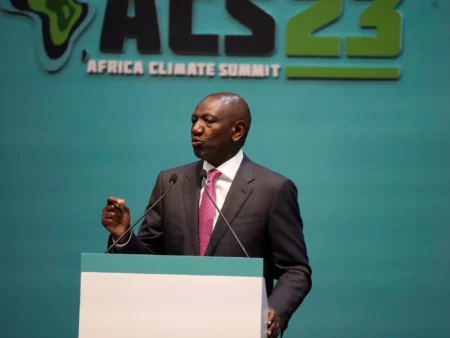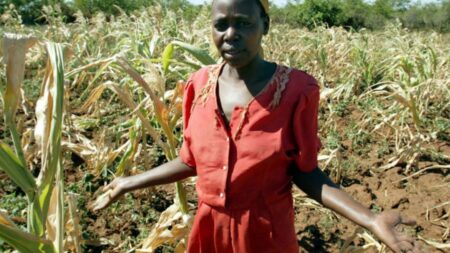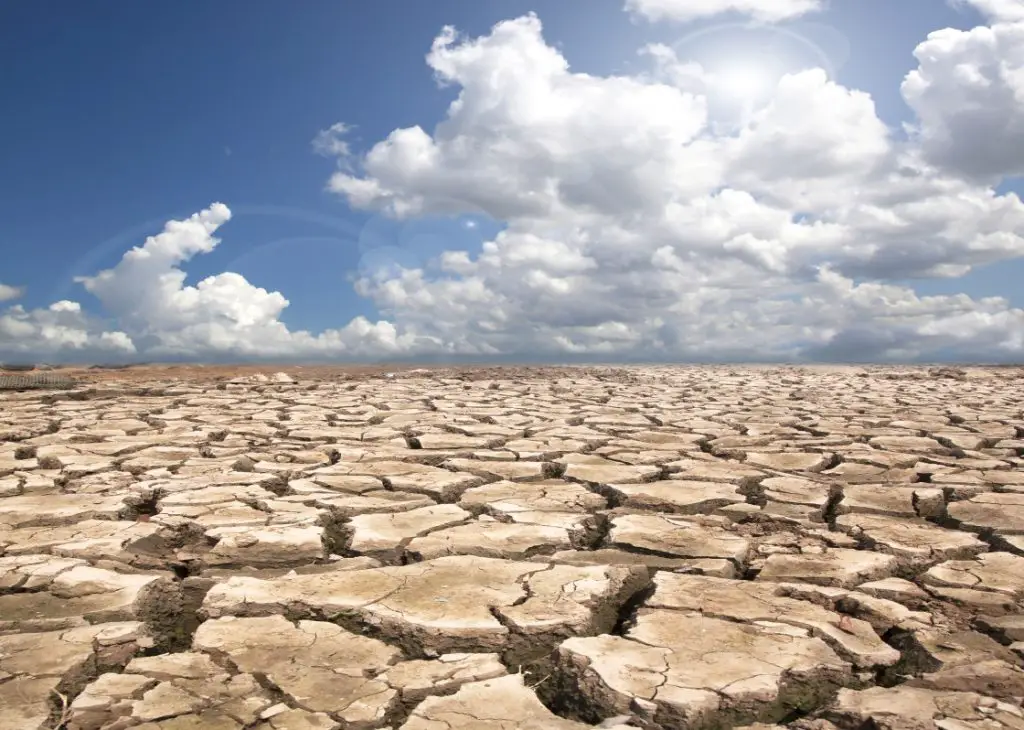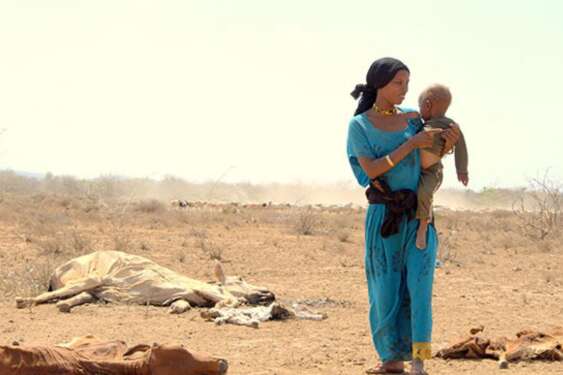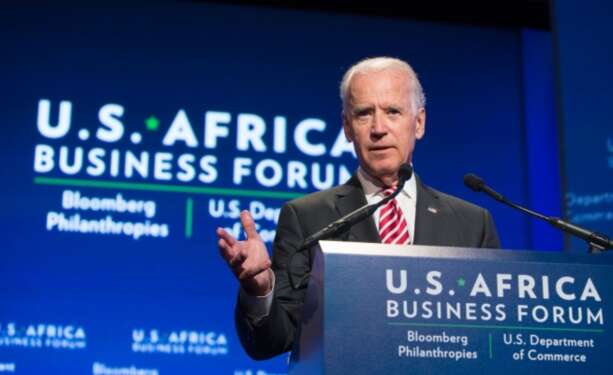- Africa’s Green Economy Summit 2026 readies pipeline of investment-ready green ventures
- East Africa banks on youth-led innovation to transform food systems sector
- The Washington Accords and Rwanda DRC Peace Deal
- Binance Junior, a crypto savings account targeting children and teens debuts in Africa
- African Union Agenda 2063 and the Conflicts Threatening “The Africa We Want”
- New HIV prevention drug is out — can ravaged African nations afford to miss it?
- From banking to supply chains, here’s how blockchain is powering lives across Africa
- Modern railways system sparks fresh drive in Tanzania’s economic ambitions
Browsing: Global Warming
Global warming: Animal populations are being ravaged not just by thirst and starvation, but by human intervention as fragile ecosystems…
A considerable gap exists between symbol and substance regarding an African climate change approach. Foreign leaders often nod to how Africa accounts for only four per cent of global emissions but bears the brunt of the devastating climate change effects. Rising temperatures, extreme weather conditions, and ecosystem disruptions threaten millions of Africans’ livelihoods.
For many communities across the continent, the climate threat is already existential. With 18 per cent of the global population, Africa has 16 of the 20 countries most vulnerable to climate change, according to Notre Dame Global Adaptation Initiative.
Currently, East Africa is reeling from the effects of the worst drought on record; extreme heat is ravaging northern Africa…
COP28 President-Designate Dr Sultan Al Jaber says Africa is a leading force in energy transition and there is a need…
Policymakers must advocate for pooling resources to support the most affected, particularly in Africa. They can financially support and share land restoration and climate adaptation technologies. Collaborations to expand inclusion that can attain a new paradigm in climate change mitigation.
The leaders of the major polluting nations and donor countries, as well as the leaders of African nations—must commit to implementing policies, allocating resources, and taking the necessary actions to address the deteriorating climate situations globally.
The calls for concrete, concomitant, and substantive actions against carbon emissions are not an exaggeration. The effects of climate change are obvious, even for the casual observer to see. Presently a devastating hurricane, Ian has made landfall on the United States coast of Florida. The tropical storm which tore through Cuba and made landfall in the United States a day ago has reportedly left an estimated 2.5 million people without electricity.
NBC News called hurricane Ian one of the most powerful storms ever to hit the United States. The hurricane it is said, has caused devastation and flooding that has left residents of Miami and Florida trapped in their homes. Hurricane Ian has been described as a category 4 hurricane with speeds of as much as 150 miles per hour or 240 kilometres per hour. Speeds like that make such a storm a threat to life and property. President Joe Biden has declared a major disaster in Florida and ordered that Federal assistance be rendered to the state efforts.
There have been reports that the polar ice caps are melting at a rapid pace and may no longer exist in this current generation. There have also been media warnings that should this eventuality become inevitable, then the low-lying parts of Denmark and surrounding countries could be submerged under water. The impact of climate change has not spared the African continent. It must be said that the impact of climate change is more devastating in Africa.
Africa’s fast population growth exacerbates the issue. According to most estimates, Africa’s population will double by 2050 and then double again by 2100, finally reaching over 4 billion by the end of the century. Feeding Africa’s rising population will need considerable breakthroughs in the continent’s food systems.
However, agricultural progress may be difficult if African farmers are subjected to more severe climatic effects. To prepare for these future difficulties, one must understand how climate change will materialize in Africa and its impact on the continent’s agricultural systems.
Has Africa stumbled upon an environmental apocalypse? The numerous natural disasters that have descended upon the continent hitherto—from the plague of desert locusts that have ambushed the Horn of Africa, tropical storms, floods across Eastern and Central Africa, severe droughts and heat waves to massive cyclones whose devastating effects are still felt across Southern Africa. The aftermath is a trail of death and destruction, threatening to erode hard-won development that most African countries have struggled to achieve, inflicting cascading economic consequences. Loss of lives, displacement of people, sources of income compromised, destruction of infrastructure and numerous development projects have been the ill-fated victims across the continent and have succumbed, in the wake of these natural disasters, to such events that have all stemmed from climate change.
Over the years, various climatic disasters have occurred, notably the recent Cyclone Idai that hit the continent’s south-eastern part. Various more catastrophic weather events continue to affect the continent socially and economically. Kenya, which relies on its agricultural sector’s performance, has evidenced a sustained and growing divergence between farm production and consumption. Notable air masses like the El Nino and La Nina have had substantial negative impacts on coastal countries such as Kenya due to rising sea levels caused by changing oceanic climatic conditions.
Kenya has been forecasted to face another severe dry spell this year as a result of La Nina. La Nina, an air mass typical of cold weather, which is not ideal for rainfall, has been hitting the east coastal country nearly every five years. In 2016, 2.7 million people were affected by a hunger crisis, and the majority of them displaced. A notable concern in such events is the government’s limited financial ability for relief aid. Much of the burden has been borne by humanitarian organizations that continue to offer substantial assistance both for disaster relief and Africa’s economic development.
Africa is suffering the worst from the effects of global warming. The continent is the least prepared to respond to…






